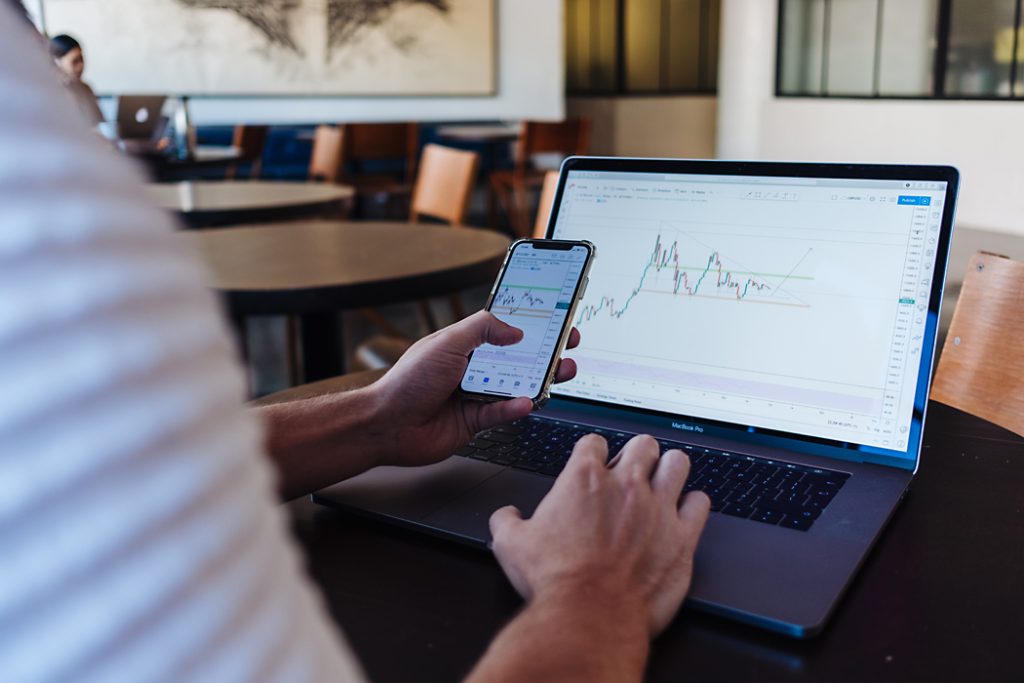
I’m reminded of Ronald Reagan’s definition of a recession and of a depression: “Recession is when your neighbor loses his job. Depression is when you lose yours.”
Humorous and clear and a little illustrative of our topic. What President Reagan was saying in his homespun way is that it’s a matter of degrees. A matter of severity.
Market corrections are similar.
The conventional definition of a market correction is any 10 percent decline in a major market index. If it declines by 20 percent or more, the correction is now a bear market. A matter of degrees and a matter of severity.
We could end this column right here, but there’s one nagging question. What exactly is a market correction correcting?
In 1970 a professor at the prestigious University of Chicago business school, Eugene Fama, published a paper from which the Efficient Market Hypothesis (EMH) was born. The idea is that the price is always right. That markets efficiently and rationally account for all known information at that time and accurately price accordingly. In more modern and understandable terms, we might say the EMH is a kind of investment-market wisdom of the crowd.
The EMH is extremely influential and incredibly wrong. None other than Warren Buffett wrote an op-ed in the Wall Street Journal in 1986 refuting it. The man who is arguably the most successful investor in history is fond of saying that when everyone is afraid, be greedy; when everyone is greedy, be afraid.
If prices were always accurate and rational, there would not be opportunities created by fear and greed. What Mr. Buffett was referring to is the well-known tendency for markets to go too far. What Mr. Fama and his fellow academics ignore is that money is highly emotional. Markets are where we have our money. It’s a very emotional place. And so for this reason, markets tend to overshoot on the upside and undershoot on the downside.
The concept behind the term “market correction” is that a market has overshot to the upside and that excess needs to be corrected.
Simple. I would stop right here, but there’s something very interesting that’s been going on for the last year that’s very relevant to this topic. Sometimes the excess in markets gets corrected through the passage of time.
It is true that in 2022 there was a bear market. But what’s interesting is that in late March while I’m writing this, the S&P 500 is at the same price it was on May 10, 2022.
Even though the price is the same, if you look at it as a unit price, it’s really not. The S&P is actually cheaper now than it was a year ago.
Over the past year, the composite earnings of the companies in the S&P 500 have gone up 12 percent, and yet the price of the index is the same. It’s as if you went to the supermarket and your favorite cereal was now in a larger box with more cereal in it for the same price as the smaller box. On a price-per-ounce basis, your cereal actually went down in price. The same principle applies to the S&P 500.
Here’s what happened. In March 2022, the S&P 500 was trading at a price that was 24.5 times earnings. Today, the price is 17.6 times earnings. That’s a 29 percent discount from a year ago.
A share of the stock of a company is the rights to a share of that company’s earnings. That’s why the price to earnings ratio is so important. So regardless of whether the price of the S&P 500 is 4,000 or 4,500 or 3,500, the real question is how much are we paying for each dollar of corporate earnings? And today that price is almost a third less than it was a year ago, even though the raw price of roughly 4,000 is very close to what it was in March 2022. The reason is that prices went sideways while earnings continued to grow.
This is known as price/earnings compression, and it will only go on for so long. Sooner or later something has to change. Either earnings need to fall or share prices need to rise.
It is always possible that we will all decide that stocks are simply worth less than they used to be, but to believe that, you have to believe that we live in a new era. While that’s possible, it’s far more likely that not much has changed, and if the price per dollar of earnings continues to decline, eventually it becomes so cheap that buyers can be expected to start snapping up shares.
If and when this happens, a new bull market will be born.
Hal Masover is a Chartered Retirement Planning Counselor and a registered representative. His firm, Investment Insights, LLC is at 508 N 2nd Street, Suite 203, Fairfield, IA 52556. Securities offered through, Cambridge Investment Research, Inc, a Broker/Dealer, Member FINRA/SIPC. Investment Advisor Representative, Cambridge Investment Research Advisors, Inc., a Registered Investment Advisor. Investment Insights, Inc & Cambridge are not affiliated. Comments and questions can be sent to hal.masover@emailsri.com These are the opinions of Hal Masover and not necessarily those of Cambridge, are for informational purposes only, and should not be construed or acted upon as individualized investment advice. Investing involves risk. Depending on the types of investments, there may be varying degrees of risk. Investors should be prepared to bear loss, including total loss of principal. Past performance is no guarantee of future results.
Indices mentioned are unmanaged and cannot be invested in directly.
